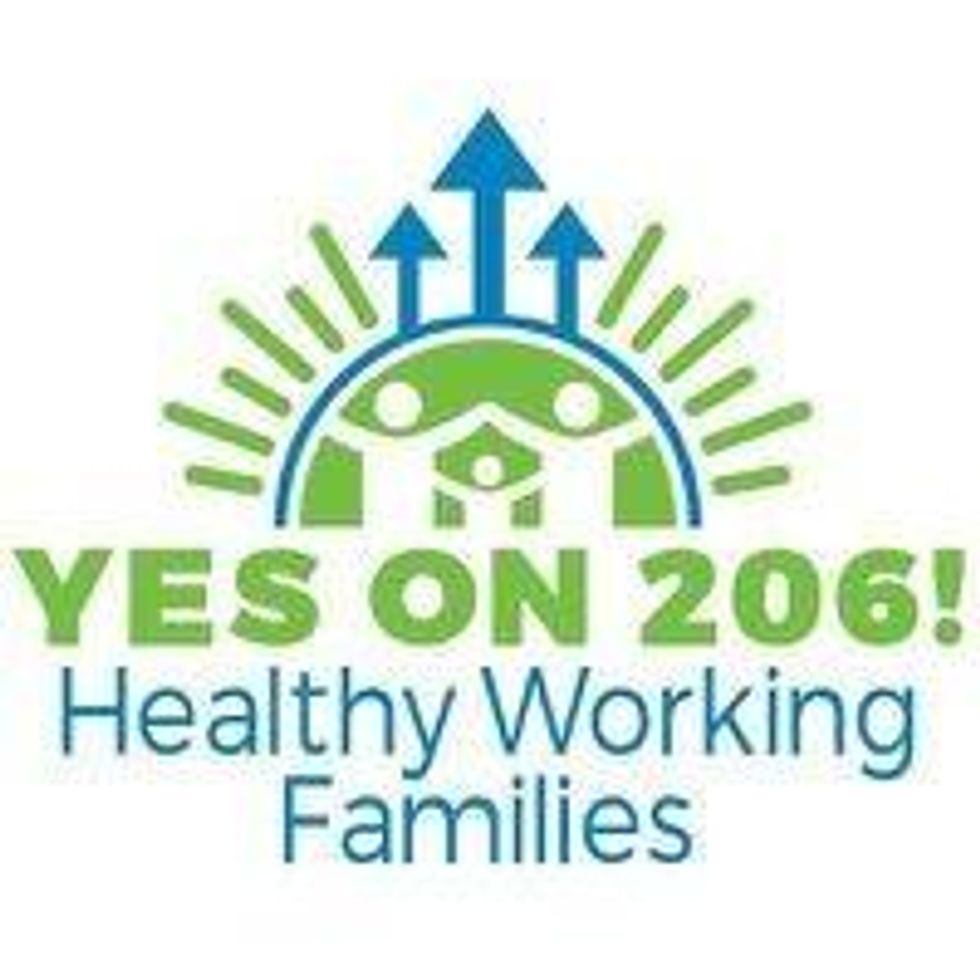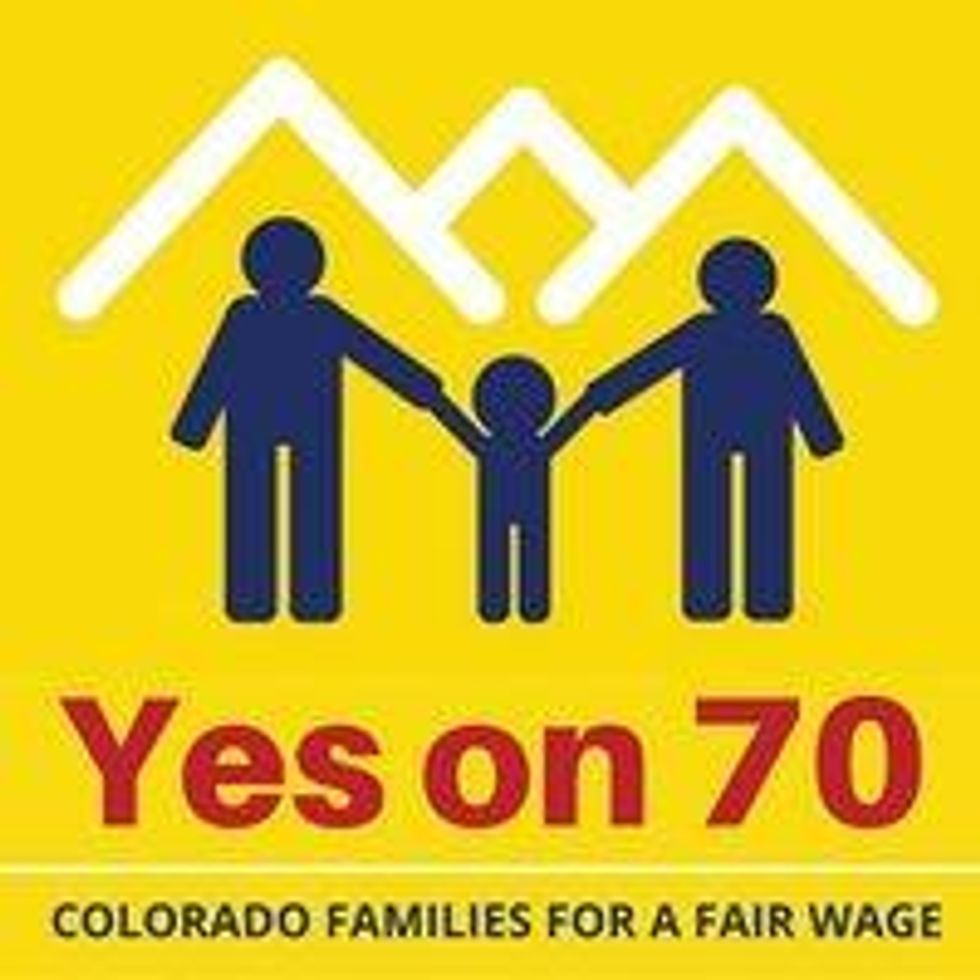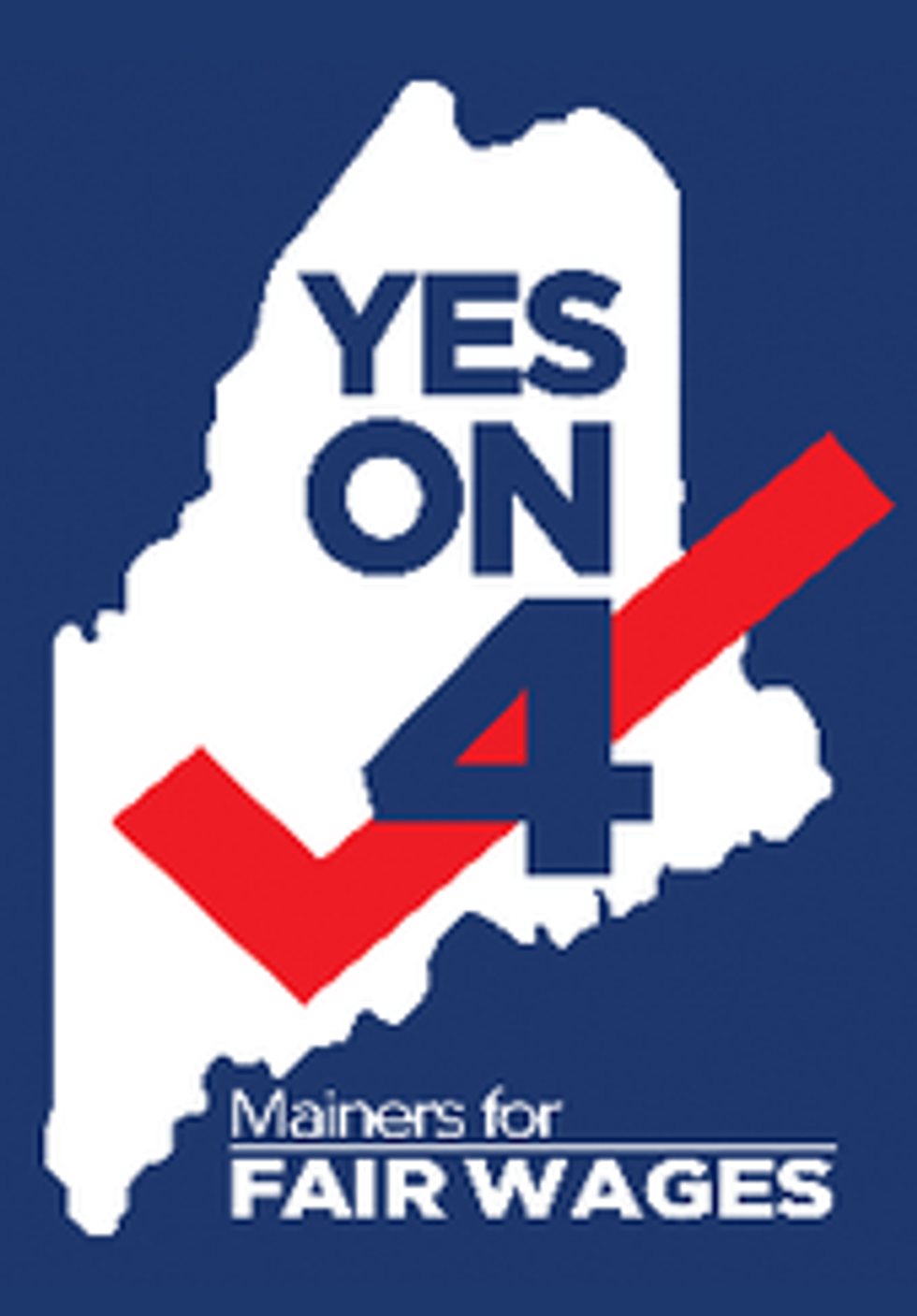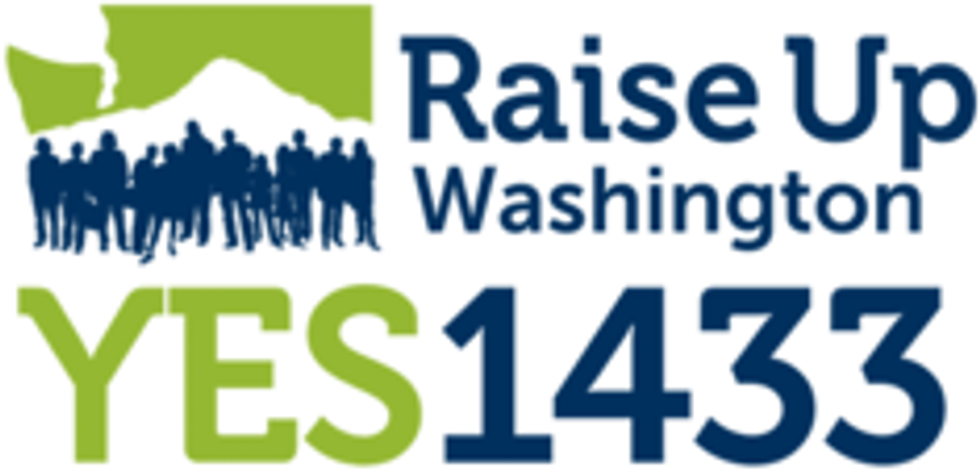Voters, "tired of waiting" for federal lawmakers, will soon be casting their ballot in Arizona, Colorado, Maine, and Washington to raise the grossly inadequate minimum wage and, advocates hope, raise the standard of living for roughly 2.1 million Americans.
While none of the four ballot measures goes so far as to call for the $15 an hour wage that has been the rallying cry of the low wage worker movement and which became a pillar of Sen. Bernie Sanders' presidential campaign, the initiatives signify a determination among Americans that it is high time to demand "an economy that can work for everyone."
"We all know that our economy is broken. We have seen that elected officials are just failing to do anything about it," said Jonathan Schleifer, executive director of The Fairness Project. "The best way for us to make the changes that impact working Americans immediately is not to wait for politicians to figure this out but for us to support ballot measures that allow voters to speak out."
Thus far, polls in all four states show that voters believe a wage increase is "long overdue and desperately needed," added Schleifer, whose organization helped launch and finance the ballot measures.
"We are confident that when working Americans see raises in their paychecks even before the next President is inaugurated," he said, "the success of these measures will inspire even more ballot initiatives in the coming years."
Arizona Proposition 206
A "yes" vote on Proposition 206, known as the Fair Wages and Healthy Families Initiative, would raise the state's minimum wage from $8.05 to $10 in 2017, and then incrementally to $12 by 2020. It also establishes the right to paid sick time off from employment.
Recent polling by Arizona Republic/Morrison/Cronkite News found that roughly 58 percent of voters support the measure, with 31 opposed, and another 10 percent still undecided.
"Enthusiasm for Proposition 206 has only gotten stronger over the course of this election season," Bill Scheel, campaign manager of Arizona Healthy Families, the organization behind Proposition 206, said in a Wednesday press call. "Over the past three months, we have registered 150,000 new voters. Already, early vote numbers are showing that these Arizonans are crucial to raising wages for nearly a million workers in our state."
The initiative has the support of a number of labor unions, family support groups, as well as the state Democratic party.
"No one who works 40 hours a week should have to live in poverty and decide between buying groceries, medicine, or paying the bills. Raising the minimum wage offers hardworking families the opportunity to put food on the table, care for their children, and creates a better future for our state," said U.S. Rep. Ann Kirkpatrick (D-1), who is running against incumbent Sen. John McCain (R) for his seat in the U.S. Senate.
McCain opposes the measure, as do corporate lobby groups and the Chamber of Commerce.
Colorado Amendment 70
Colorado's Amendment 70, an initiated constitutional amendment, would raise the minimum wage from $8.31 to $9.30 per hour in 2017 and then increase it 90 cents each year until it reaches $12.00 in 2020.
September polling found that roughly 58 percent of voters are in support of the measure, while 36 percent are opposed. "We've known all along that Colorado voters support raising the wage to $12 by 2020 and that for many of them, especially lower income voters and women, they are more enthusiastic voters in this election because of our measure," said Patty Kupfer, campaign manager for Colorado Families for a Fair Wage, the organization supporting Amendment 70.
As Kupfer notes, the initiative's primary opponents are industry groups and "large restaurant chains who have an interest in keeping wages low."
Amendment 70 is one of many Colorado ballot measures this year that progressives nationwide are watching, in addition to a measure calling for a single payer healthcare system as well as one that would stiffen requirements for amending the state's constitution, which, as Common Dreams previously reported, "would transfer power away from voters, making the state more vulnerable to powerful interests."
Maine Question 4
Question 4 on the Maine ballot asks voters if they "want to raise the minimum hourly wage of $7.50 to $9 in 2017, with annual $1 increases up to $12 in 2020, and annual cost-of-living increases thereafter?"
The citizen-initiated effort also seeks to raise the wages for tipped workers "from half the minimum wage to $5 in 2017, with annual $1 increases until it reaches the adjusted minimum wage."
A poll conducted between Oct. 20 and Oct. 25 found that 57 percent of Mainers support the wage increase, while just 35 percent oppose it, and eight percent remain undecided. Proponents attribute its wide support to two years of organizing to build grassroots support and "establish a narrative of an economy that can work for everyone, as Mike Tipping, communications director with Mainers for Fair Wages, the organization supporting Question 4, put it in a recent press call.
Noting that the measure has strong support "across every demographic," including among small businesses and restaurants, Tipping said he's "proud to see this enthusiasm translate into more young people voting and more Mainers voting early to raise the minimum wage."
Washington Initiative 1433
The most ambitious of the 2016 ballot efforts, Washington State's Initiative 1433 supports incrementally raising the state's minimum wage from $9.47 to $13.50 by 2020 and mandates that employers offer paid sick leave.
"Paid sick leave and minimum wage are issues that have had a deep effect on working families and drive support for our initiative at the polls," said Carlo Caldirola-Davis, campaign manager for
Raise Up Washington, the organization supporting Initiative 1433. "Voters understand that hard working Washingtonians should be able to care for their families and make ends meet."
The most recent survey from pollster Stuart Elway found that I-1433 is leading 58 to 31 percent, with 11 percent undecided. The initiative has wide support, and has been endorsed by numerous publications, advocacy organizations, labor groups, and public officials, including Democratic presidential nominee Hillary Clinton, who last spring tweeted:
In 2014, Seattle became the first major city to approve a $15 minimum wage.







